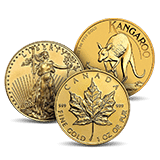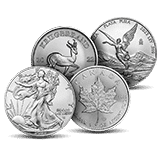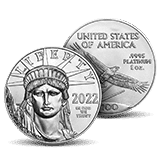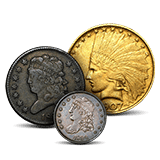
Learn About Brass and Copper North West Company 1820 Tokens
The North West Company was a fur trading enterprise that operated in Canada and expanded south and west across America, all the way to the Oregon Territory. It commenced operations in 1779 and was headquartered in Montreal, Canada.
The agents for the North West Company bought animal furs and the highly-sought beaver pelts from traders, trappers and Native Americans and Indigenous Canadian tribes. They were extremely successful at their craft. But so was their main competitor in the region – the Hudson’s Bay Company. The competition was fierce and many territorial disputes occurred. Prices rose as the two large companies competed for the limited numbers of products from the same providers. The two companies had spent decades competing against one another – and costing each other money. But in 1821, the two companies merged and operated under the name of the Hudson’s Bay Company, so that company would not lose its Royal Charter, graded by the King of England.
But while the North West Company was still independent, it created a system where it would provide a token to a trapper or hunter for each beaver pelt they traded to the Company. That token was redeemable in trade for the goods that hunters and trappers needed to survive in the wilderness.
The tokens were simply designed but were struck in England and shipped back to North America for use across the continent. The obverse displays a draped bust of King George IV of England, wearing a laurel wreath on his head, facing right. Above the King was the word “TOKEN” and below his bust was the date “1820”.
The reverse was similarly simply designed. The central vignette was of a beaver standing on branches, with “NORTH WEST” above him and “COMPANY” below.

These tokens were struck in Birmingham, England by John Walker and Company. They were struck in both Copper and in Brass. Some tokens had plain edges, others had diagonal reeding around the edge, while still others had an engrailed edge.

The overwhelming majority of these tokens are holed for suspension, as they were usually worn around the hunter or trapper’s neck for safekeeping. They were also worn, especially in the case of Native Peoples as adornments. Due to the fact that they were often worn on the body and exposed to the elements, many pieces are heavily worn or corroded or, oftentimes, both.
Although actually not US colonial coins, they are often collected with them as the subject matter is highly pertinent to the commerce of the times. In fact, these tokens are collected by both US and Canadian coin collectors.
The surviving number of specimens is approximately 75 to 90 pieces, in a total of both brass and copper and in all grades. The majority of the surviving specimens – possibly 60 tokens – are brass examples and only six are known to be un-holed. Any example is rare and highly collectible!
| Date | Type | Mintage | Good Value | VF Value |
| 1820 | Brass | 65 Known | $950 | $9,000 |
| 1820 | Copper | 20-30 Known | $1,000 | $10,000 |
Expand your collection today and shop our assortment of tokens and medals.




